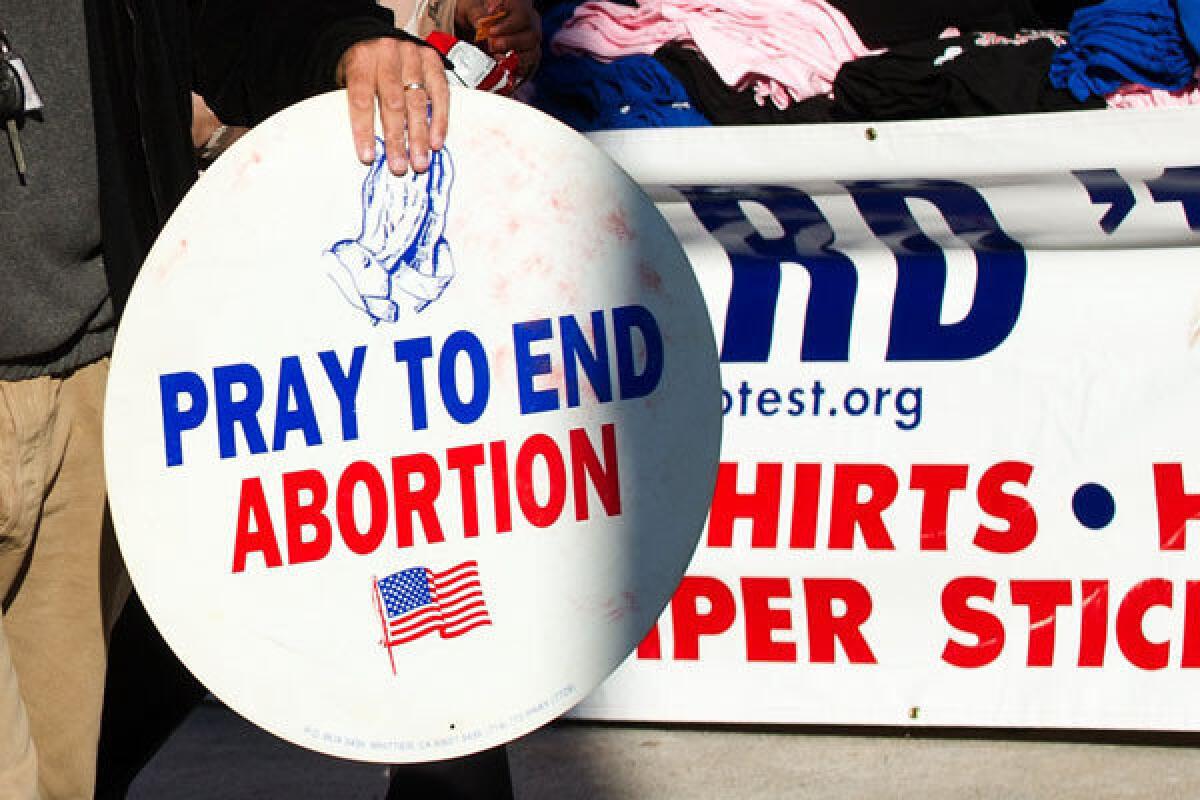Supreme Court rules in favor of man carrying signs of aborted fetuses

WASHINGTON -- The Supreme Court ruled Monday that an antiabortion protester who won the right to carry displays of aborted fetuses at a busy intersection is a civil rights advocate entitled to claim attorneys’ fees in his case against a local government.
The justices in an unsigned opinion said that because the South Carolina antiabortion activist had a free-speech right to “carry pictures of aborted fetuses” that had shocked bystanders, he also had the right under the Civil Rights Act to claim legal fees for vindicating this right in the courts.
In the Civil Rights Attorneys Fees Act of 1976, Congress said civil rights lawyers who sued and won cases involving constitutional rights were entitled to claim “reasonable attorney’s fees.” The law was intended to bolster civil rights advocates who filed suits in that era over issues such as school desegregation.
The high court’s decision makes clear that the law applies just the same to antiabortion protesters who clash with police or city officials.
In November 2005, Steven Lefemine, who leads a group called Columbia Christians for Life, led 20 protesters who stood at the busiest intersection in Greenwood County, S.C., and held up photos intended to show “the horrors of abortion.” Several motorists called the police to complain. They included a frantic mother who said her young child was screaming in the back seat after seeing the photos.
According to court paper, an officer arrived and told Lefemine he was causing a traffic disturbance and that he must “remove the signs.” He did as instructed, but later filed suit against Sheriff Dan Wideman with the help of the National Legal Foundation, a self-described “Christian public interest law firm” in Virginia Beach, Va.
A federal judge in Greenville, S.C. agreed that the 1st Amendment guaranteed Lefemine’s right to the “display of graphic signs,” so long as he did not cause a traffic disturbance. But the judge also shielded the sheriff and city officials from paying damages in the case.
He also denied attorney’s fees to Lefemine. The U.S. 4th Circuit Court of Appeals affirmed the judge’s decision in March.
Without hearing arguments in the case, the Supreme Court reversed the rulings and said Lefemine was due civil rights fees as the “prevailing party” in his suit against the sheriff.
He went to court because he “desired to conduct demonstrations in Greenwood County with signs that the police officers told him he could not carry. ... After the [judge’s] ruling, the police could not prevent him from demonstrating in that manner,” the high court said in Lefemine vs. Wideman. That makes him “a prevailing party” who can claim attorney’s fees under the law, the justices said.
ALSO:
After Sandy, hot meals and help at Hoboken Elks Club
Twitter in the time of Sandy: A few lies, and then redemption
Sandy spared Macy’s Thanksgiving parade giant balloons, floats
More to Read
Start your day right
Sign up for Essential California for news, features and recommendations from the L.A. Times and beyond in your inbox six days a week.
You may occasionally receive promotional content from the Los Angeles Times.






